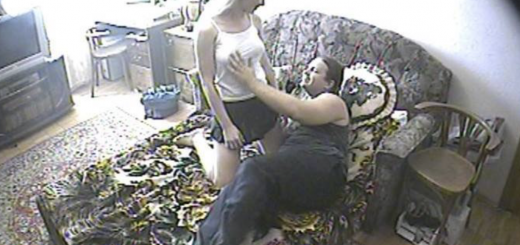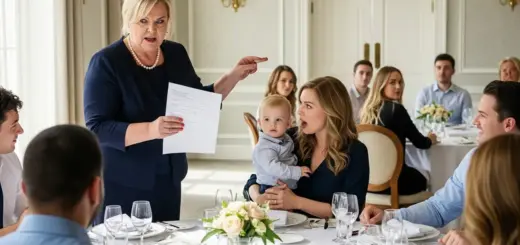I had invested months in securing the ideal accommodations, hand-picking suites with the most breathtaking views, commissioning welcome baskets brimming with artisanal Italian delicacies, and creating personalized itineraries for every single member of the family. Catherine offered her itinerary a cursory glance before casually setting it aside on a marble-topped table.
— “We’ll just play it by ear, darling,” she announced, dismissing weeks of my painstaking work with a wave of her hand. “The family knows Rome quite well, you see.”
The suite assigned to Ethan and me was nothing short of magnificent. It featured a sprawling terrace that overlooked the Spanish Steps, fresh floral arrangements in every room, and a decanter of Ethan’s favorite Barolo already breathing on the sideboard. But the instant the door closed behind us, Ethan’s phone buzzed. He immediately stepped out onto the terrace, his voice lowered to a conspiratorial hush.
— “Work?” I inquired when he came back inside.
— “Just some lingering issues with an investment,” he answered, his gaze deliberately avoiding mine. “Let’s get ready for dinner.”
The welcome dinner, which I had arranged at a celebrated trattoria in the charming Trastevere district, served as the first overt signal of my planned exclusion. By some mysterious turn of events, the seating arrangement was altered moments before our arrival. I found myself relegated to the far end of the long table, physically separated from Ethan by his cousin and an aunt. For the duration of the meal, inside jokes and shared memories of past family excursions to Italy—all of which had occurred before my time—crisscrossed the table. When I made an attempt to contribute to a discussion about the planned activities for the coming week, Charlotte cut me off mid-sentence.
— “Oh, Jessica, we’ve actually made a decision to do some family shopping tomorrow, instead of the Vatican tour you arranged.”
— “Family shopping?” I asked, my voice betraying a hint of confusion.
— “You know,” Catherine interjected, her tone as smooth as silk, “it’s just a little tradition we have. You would be utterly bored, my dear. Why don’t you use that time to double-check the arrangements for the birthday dinner? That is your area of expertise, after all.”
This pattern of exclusion persisted over the next several days. I would awaken in the morning to find Ethan’s side of the bed already empty, with only a hastily scrawled note left behind, mentioning a breakfast meeting with his father. The family would then vanish for hours at a time on what they termed “impromptu excursions,” which, miraculously, everyone but me seemed to know about in advance.
Whispered conversations in the corners of the hotel lobby would cease the moment I approached. Dinner reservations I had made were inexplicably changed to accommodate “old friends” who just so happened to be visiting Rome—friends who would look at me with a barely concealed curiosity, as if they were evaluating how I was bearing up under the pressure of what was to come.
On the third morning, a perfect opportunity arose when Ethan, rushing to meet his brother for coffee, left his leather briefcase unlocked on the bed. The documents contained within confirmed my most terrifying suspicions. There were draft separation papers, prepared by the Richardson family’s high-powered law firm and dated two months prior. There was a proposed settlement that offered me a pittance of what I was legally entitled to. And most damning of all, there was a script—an actual, typewritten script—that detailed precisely how Ethan was to announce our impending divorce during his mother’s birthday dinner, framing it as a mutual and amicable decision.
My hands trembled as I used my phone to photograph every single page. It was all there, laid out in cold, calculating black and white: the perfectly stage-managed dismissal of the unsuitable wife, timed for maximum public impact while causing minimum social embarrassment for the Richardson name. Catherine’s 70th birthday was not just a celebration; it was intended to be the public funeral of my life as a Richardson.
Rather than confronting Ethan, I channeled my burgeoning rage into methodical, silent documentation. Each day, I fabricated excuses to return to our suite alone, searching for additional proof. I uncovered bank statements that detailed massive fund withdrawals to offshore accounts. I found email printouts that discussed the liquidation of assets “before the situation becomes public.” And I found a handwritten note from Catherine to Ethan: Once this unpleasantness with Jessica is finally behind us, Brooke will be welcomed back into the family properly.
My professional mask remained immovably in place as I continued to oversee the final preparations for the birthday gala. I confirmed the floral arrangements with the florist, I met with the restaurant manager to go over the service timeline, and I approved the design of the custom-printed menu cards, all while discreetly gathering the digital breadcrumbs of the Richardsons’ collapsing financial empire. Whenever a family member questioned why I seemed distracted, I would blame it on the stress of last-minute event details. In truth, I was meticulously building my arsenal.
The morning of Catherine’s birthday arrived, bright and clear. I woke before dawn, slipping out of bed without disturbing the man who was still, for the moment, my husband. The day’s schedule was packed: a private morning tour of the Borghese Gallery, followed by lunch at a vineyard in the hills outside the city, and then a return to the hotel to prepare for the evening’s grand dinner. As the event planner, protocol dictated that I arrive at the restaurant well in advance to ensure every detail was flawless. I was in the hotel’s business center, printing out some final confirmations, when I heard Catherine’s unmistakable voice coming from the adjacent concierge desk.
The partition wall was thin, and her imperious, commanding tone carried with perfect clarity.
— “There will be twelve seats, not thirteen,” she instructed someone on the other end of the phone line. “I don’t care what the original reservation confirmation says. The seating chart I sent over this morning is the final one.”
There was a pause.
— “No, that will not be a problem,” she continued. “The new arrangement has been thoroughly discussed with my son. His wife will not be staying for the duration of the dinner. It’s a family matter, you understand. There’s no need for any questions when she departs.”
My blood turned to ice as the final, brutal pieces of their plan clicked into place. The missing seat was not some careless oversight or a last-minute adjustment. It was the linchpin of their entire scheme—a calculated, public humiliation designed to make my departure appear as if it were my own volatile choice, rather than their cold, orchestrated expulsion.
I calmly closed my laptop, gathered my papers, and walked to the elevator with measured, deliberate steps. As the doors slid shut, I took out my phone and began to make an entirely new set of arrangements. If the Richardsons wanted a memorable birthday dinner, I was going to make absolutely certain it was an unforgettable one. Just not in the way they had planned.
As any diligent event planner would, I arrived at Aroma Restaurant a full hour before the scheduled arrival of the guests. The exclusive rooftop venue provided a truly breathtaking, panoramic vista of the Colosseum, which was bathed in the warm, amber radiance of the setting sun. I conducted a personal inspection of every single detail, from the elegantly hand-calligraphed place cards to the precise arrangement of Catherine’s favorite white peonies and roses.






















































